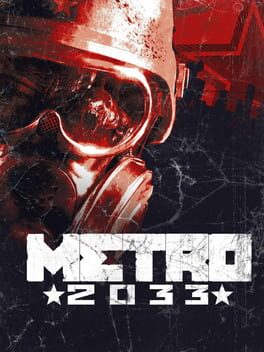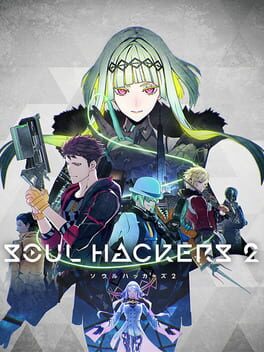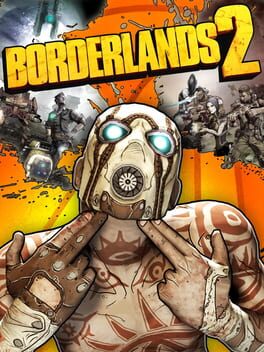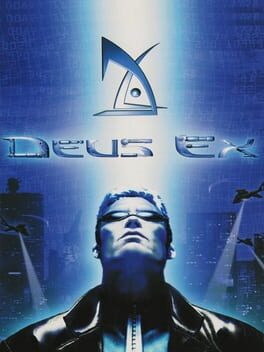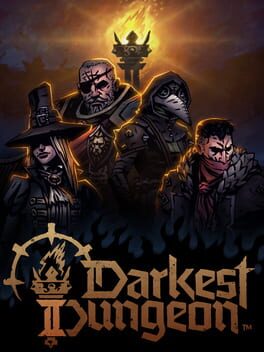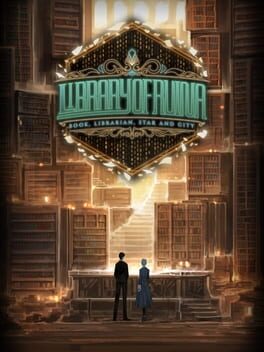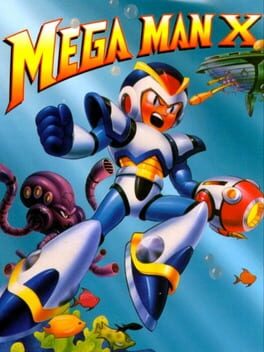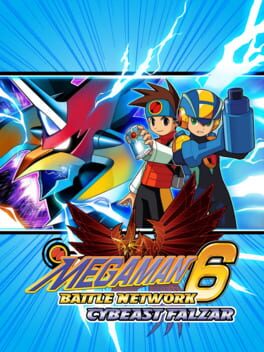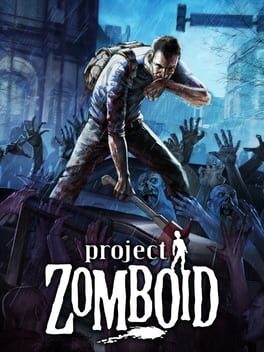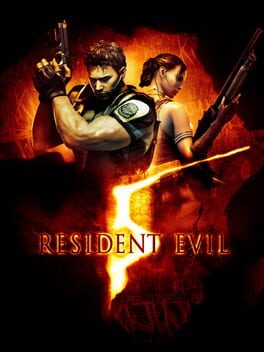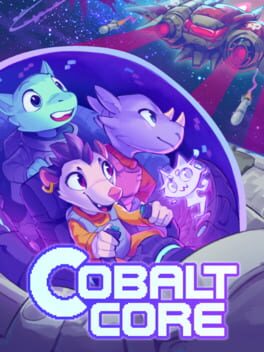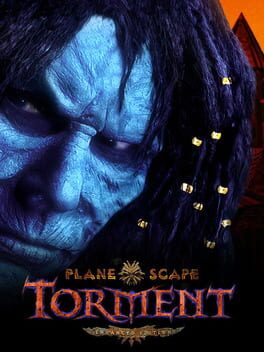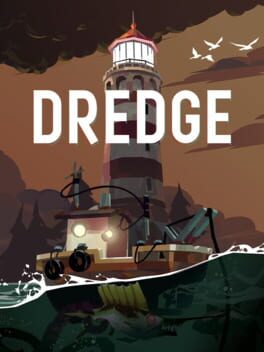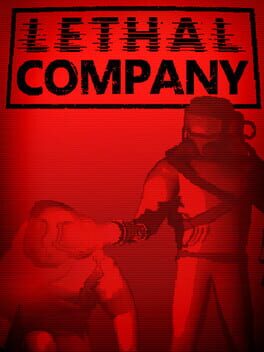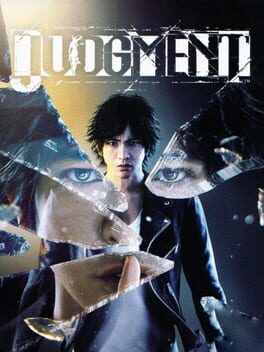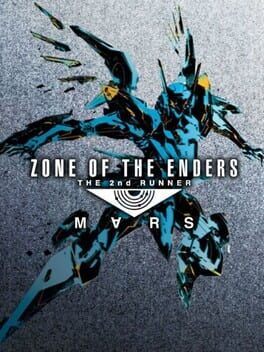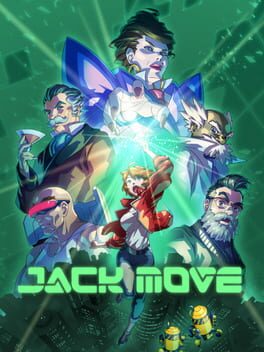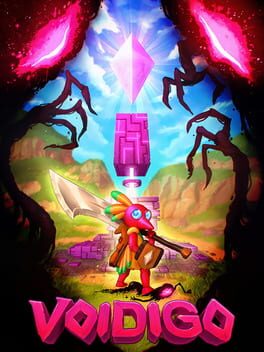Lyadh
5 reviews liked by Lyadh
Metro 2033
2010
(Specifically, this is based on my experience with Redux)
There is something most endearing about Metro 2033 that makes it stand out in the endless ocean of post-apocalyptic video games.
For starters it does have a rather unique take on the genre, at least when it comes to its setting and perspective. Instead of a post-apocalyptic New York or another American concrete wilderness, Metro is set under Russian soil, within the titular rail system. Even now it feels like a very inspired setting, at least for video games. Coming from the Ukrainian studio 4A Games, this also brings a rather refreshing perspective. Yes, metro 2033 is as bleak and dark as some you'd expect from a post-apocalyptic work, but there is still something very subdued and restrained about its approach that I can't quite put my finger on. So let's dig in to try and find out why's that.
Metro 2033 excels in creating a strong, oppressive atmosphere. The underground settlements are filled with ever-melancholic detail, dimly-lit, over-crowded, filled with coughing and shouting and arguing and despair. It's a sobering image, defied by solidifying the fall of man by his own hand. And in the times we see the outside world, it ain't better. The ruins of Moscow are consumed by eternal nuclear winter, bright and blinding as mutated lifeforms roam and roar and never let you feel safe.
Metro 2033 looks very good, but visuals aren't the only reason why its setting works so well. Sound design is phenomenal, from big devastating moments to the smaller, more frightening situations Artyom finds himself in. The way bunkers echo your footsteps as you walk, the way unchecked electricity zips in the silencing dark. Distant growls and movements from every direction. Artyom's breathing growing heavier as the oxygen in his mask runs out. There are a lot of things one can criticize Metro 2033 for, but sound design is absolutely not one of them.
The story is fine, the storytelling and themes Metro explores are more interesting than the actual plot. The game is great at depicting Artyom's physically- and mentally-demanding journey with all the stops and losses along the way, and it does show the horrible consequences of mankind's nuclear warfare in exquisite detail, but when zoomed a little back, it's a solid if unremarkable narrative. I will give it that, while the characters are not too complex, 4A Games really succeeded in making even some of the redshirts affable and human. And when some of them died, I couldn't help but feel a tad bit of sadness after the fact.
As far as gameplay goes, Metro is more than just serviceable. Guns feel mostly good to fire with, there is limited customization to them too which adds a bit of flavor to the combat. But it's the little touches added that make the experience all the more unnerving, like the need to watch your oxygen tank in radiated areas, or replace your mask if the glasses keeps getting cracked. Some gas-fueled guns require air-pumping to work, and you need to manually power-up your light if you want to see in darker regions. Your visor can also get dirty and you also have the chance to get night goggles. At the heat of combat and especially when Artyom is alone on the road, this can lead to some intense, terrific moments.
The level design is above-average. 4A Games wear its Half-Life inspirations on the sleeve and they do a commendable job for the most part. There is enough space to allow for organic storytelling as well as player agency for enemy-occupied arenas. Some areas can get a little confusing, though. Directions can get unclear despite the linearity of the campaign. Enemy AI can be a bit of hit-and-miss. There are some levels that produce infinite enemies, which is not an inherently bad idea but at some point it becomes more frustrating than terrifying. The final level is a tad disappointing and clunky. But it's nothing deal-breaking overall.
All in all, for a studio debut, Metro 2033 is pretty damn good. It's very rough around the edges, but there is a lot of love and detail poured into this package. I always appreciate a good FPS campaign, and Metro 2033 gave me just that.
There is something most endearing about Metro 2033 that makes it stand out in the endless ocean of post-apocalyptic video games.
For starters it does have a rather unique take on the genre, at least when it comes to its setting and perspective. Instead of a post-apocalyptic New York or another American concrete wilderness, Metro is set under Russian soil, within the titular rail system. Even now it feels like a very inspired setting, at least for video games. Coming from the Ukrainian studio 4A Games, this also brings a rather refreshing perspective. Yes, metro 2033 is as bleak and dark as some you'd expect from a post-apocalyptic work, but there is still something very subdued and restrained about its approach that I can't quite put my finger on. So let's dig in to try and find out why's that.
Metro 2033 excels in creating a strong, oppressive atmosphere. The underground settlements are filled with ever-melancholic detail, dimly-lit, over-crowded, filled with coughing and shouting and arguing and despair. It's a sobering image, defied by solidifying the fall of man by his own hand. And in the times we see the outside world, it ain't better. The ruins of Moscow are consumed by eternal nuclear winter, bright and blinding as mutated lifeforms roam and roar and never let you feel safe.
Metro 2033 looks very good, but visuals aren't the only reason why its setting works so well. Sound design is phenomenal, from big devastating moments to the smaller, more frightening situations Artyom finds himself in. The way bunkers echo your footsteps as you walk, the way unchecked electricity zips in the silencing dark. Distant growls and movements from every direction. Artyom's breathing growing heavier as the oxygen in his mask runs out. There are a lot of things one can criticize Metro 2033 for, but sound design is absolutely not one of them.
The story is fine, the storytelling and themes Metro explores are more interesting than the actual plot. The game is great at depicting Artyom's physically- and mentally-demanding journey with all the stops and losses along the way, and it does show the horrible consequences of mankind's nuclear warfare in exquisite detail, but when zoomed a little back, it's a solid if unremarkable narrative. I will give it that, while the characters are not too complex, 4A Games really succeeded in making even some of the redshirts affable and human. And when some of them died, I couldn't help but feel a tad bit of sadness after the fact.
As far as gameplay goes, Metro is more than just serviceable. Guns feel mostly good to fire with, there is limited customization to them too which adds a bit of flavor to the combat. But it's the little touches added that make the experience all the more unnerving, like the need to watch your oxygen tank in radiated areas, or replace your mask if the glasses keeps getting cracked. Some gas-fueled guns require air-pumping to work, and you need to manually power-up your light if you want to see in darker regions. Your visor can also get dirty and you also have the chance to get night goggles. At the heat of combat and especially when Artyom is alone on the road, this can lead to some intense, terrific moments.
The level design is above-average. 4A Games wear its Half-Life inspirations on the sleeve and they do a commendable job for the most part. There is enough space to allow for organic storytelling as well as player agency for enemy-occupied arenas. Some areas can get a little confusing, though. Directions can get unclear despite the linearity of the campaign. Enemy AI can be a bit of hit-and-miss. There are some levels that produce infinite enemies, which is not an inherently bad idea but at some point it becomes more frustrating than terrifying. The final level is a tad disappointing and clunky. But it's nothing deal-breaking overall.
All in all, for a studio debut, Metro 2033 is pretty damn good. It's very rough around the edges, but there is a lot of love and detail poured into this package. I always appreciate a good FPS campaign, and Metro 2033 gave me just that.
Soul Hackers 2
2022
Probably one of the most unremarkable SMT games in the franchise, with the safest approach taken to one of the most radically unique franchises within the JRPG space. The title languishes in flat, samey combat within overlong dungeons, wrapped around a completely by the numbers budget JRPG story.
Principally, one of main reasons I get into this franchise is the satisfying progression loop of acquiring stronger demons. Most games lets you do this via demon negotiation, and subsequently fusing demons you obtain. However, Soul Hackers 2 finds a way to make that feel worse too, since recruitment is now wrested from player control and given to randomly appearing nodes, of which a random demon emerges which is two layers of RNG just to obtain the demon you want, which is absurd. On top of that, the game ends around the level 60-70 mark so you never get to experience the ceiling of demons in a normal playthrough which is pretty absurd to me. It makes the progression feel stunted, and I find myself pretty attached to certain demons because of gameplay history so it's disappointing that I just didn't get to use them here.
The story is the most painful part here, because its not even bad enough to get like AVGN mad at, because it's just the most stereotypical JRPG plot you can think of in this regard without anything else to hold it up. Character storylines come and go in a flash and it's hard to care about anything outside of just a tenuous attachment to character personalities, of which yeah Saizo and Milady are pretty cool characters but their storylines amount to nothing. The main plot just glides by then switches gears right as the ending is about ready to float on through and before you know it the game is over, nothing interesting to say, no food for thought, probably the most vapid thematics in an SMT game since like, TMS#FE but even that game had something to say about the entertainment industry.
This game really just coasts along on franchise recognition, good aesthetics, the baseline good gameplay as expected from an Atlus JRPG, but with none of the flavour, the substance, or anything that'll make this game worth talking about even years from now, and it really makes me sad because I've been opining for years about how Atlus had regressed in making SMT spin-offs, only to be met with this, I think I'd be happier with just the Persona and mainline SMTs.
Principally, one of main reasons I get into this franchise is the satisfying progression loop of acquiring stronger demons. Most games lets you do this via demon negotiation, and subsequently fusing demons you obtain. However, Soul Hackers 2 finds a way to make that feel worse too, since recruitment is now wrested from player control and given to randomly appearing nodes, of which a random demon emerges which is two layers of RNG just to obtain the demon you want, which is absurd. On top of that, the game ends around the level 60-70 mark so you never get to experience the ceiling of demons in a normal playthrough which is pretty absurd to me. It makes the progression feel stunted, and I find myself pretty attached to certain demons because of gameplay history so it's disappointing that I just didn't get to use them here.
The story is the most painful part here, because its not even bad enough to get like AVGN mad at, because it's just the most stereotypical JRPG plot you can think of in this regard without anything else to hold it up. Character storylines come and go in a flash and it's hard to care about anything outside of just a tenuous attachment to character personalities, of which yeah Saizo and Milady are pretty cool characters but their storylines amount to nothing. The main plot just glides by then switches gears right as the ending is about ready to float on through and before you know it the game is over, nothing interesting to say, no food for thought, probably the most vapid thematics in an SMT game since like, TMS#FE but even that game had something to say about the entertainment industry.
This game really just coasts along on franchise recognition, good aesthetics, the baseline good gameplay as expected from an Atlus JRPG, but with none of the flavour, the substance, or anything that'll make this game worth talking about even years from now, and it really makes me sad because I've been opining for years about how Atlus had regressed in making SMT spin-offs, only to be met with this, I think I'd be happier with just the Persona and mainline SMTs.
Borderlands 2
2012
Super Metroid
1994
I know that it's sacrilege to not praise Super Metroid to the high heavens, but without any nostalgia attached to it and without a particular affinity towards the Metroidvania genre, I simply was not having a good time playing this game.
I can appreciate the groundwork that this game has built for game design in general, but playing in 2021, there are just too many factors that go against what's considered a fun and fluid game, and I can't make the same argument for other major SNES titles that have aged more gracefully.
I can appreciate the groundwork that this game has built for game design in general, but playing in 2021, there are just too many factors that go against what's considered a fun and fluid game, and I can't make the same argument for other major SNES titles that have aged more gracefully.
Deus Ex
2000
Monumental, uncomfortable and humane, Deus Ex used to be the biggest omission from my gaming experience and I finally sat down to play it in 2020, the year when game's prodigious far sight reached terrifying heights.
It is still to this day a model example of fantastic game design aided by visual coherence. Early 3D look leads to no visual clutter, making all important details and interactables pop and catch the eye, guiding you through complex environments with invisible hand. Aspects like limited inventory space or aim reticle shrinking when you stand still seem constraining at first, but they teach you punctuality and preciseness, leading to better understanding of environment, power and available resources. From the bumpy beginning Deus Ex nurtures you to do measured choices when dealing with problems which carries from gameplay to story, and you'd be pressed to find a game that does it so seamlessly.
There was a certain moment though when it's all clicked. The note about partitioning New York into segregated blocks to counter the terrorist threat hit way too close to home. It reminded about my own country's safety theatre. How with an excuse to prevent attacks the government tightened up the security in public places in a way that probably won't be too helpful against terrorism, but is very handy to keep surveillance and inspection of people while also implanting the idea of constant danger in minds of populace. And that's... exactly what was going on in Deus Ex. And they predicted this development back in 2000. Kind of an impressive prognosis, isn't it?
That's the power of Deus Ex you see everyone talking about. In bold strokes it makes assumptions about the future which land eerily close to reality, and this state of artful hyperrealism creates an incredible sense of investment. It's quite rare for a game to make me look in every note, read every e-mail and diary. Even rarer when a game manages to have me seek exposition, not dread it. I just couldn't get enough of this world and wicked reflections of us it manages to create.
Of course it's still a game, an entertainment. It's dumb, self-aware, it's full of silly video game things and it doesn't want to be taken seriously. Down to the core Deus Ex is still just a incredibly fun and campy adventure of a lovable secret agent untangling the conspiracy of goofy villains whom you love to hate. But it also wishes to enrich and challenge your worldviews like some of the best written media does. And that's undoubtedly very special.
It is still to this day a model example of fantastic game design aided by visual coherence. Early 3D look leads to no visual clutter, making all important details and interactables pop and catch the eye, guiding you through complex environments with invisible hand. Aspects like limited inventory space or aim reticle shrinking when you stand still seem constraining at first, but they teach you punctuality and preciseness, leading to better understanding of environment, power and available resources. From the bumpy beginning Deus Ex nurtures you to do measured choices when dealing with problems which carries from gameplay to story, and you'd be pressed to find a game that does it so seamlessly.
There was a certain moment though when it's all clicked. The note about partitioning New York into segregated blocks to counter the terrorist threat hit way too close to home. It reminded about my own country's safety theatre. How with an excuse to prevent attacks the government tightened up the security in public places in a way that probably won't be too helpful against terrorism, but is very handy to keep surveillance and inspection of people while also implanting the idea of constant danger in minds of populace. And that's... exactly what was going on in Deus Ex. And they predicted this development back in 2000. Kind of an impressive prognosis, isn't it?
That's the power of Deus Ex you see everyone talking about. In bold strokes it makes assumptions about the future which land eerily close to reality, and this state of artful hyperrealism creates an incredible sense of investment. It's quite rare for a game to make me look in every note, read every e-mail and diary. Even rarer when a game manages to have me seek exposition, not dread it. I just couldn't get enough of this world and wicked reflections of us it manages to create.
Of course it's still a game, an entertainment. It's dumb, self-aware, it's full of silly video game things and it doesn't want to be taken seriously. Down to the core Deus Ex is still just a incredibly fun and campy adventure of a lovable secret agent untangling the conspiracy of goofy villains whom you love to hate. But it also wishes to enrich and challenge your worldviews like some of the best written media does. And that's undoubtedly very special.
